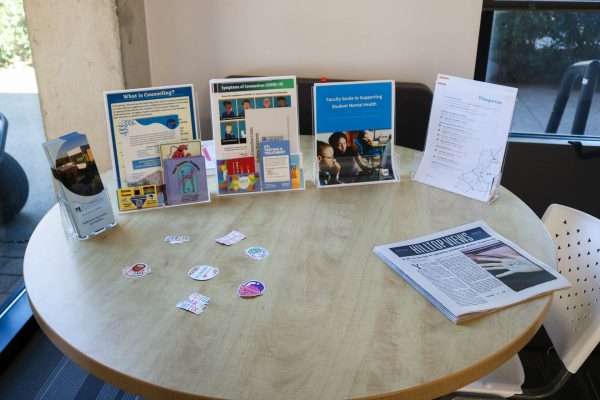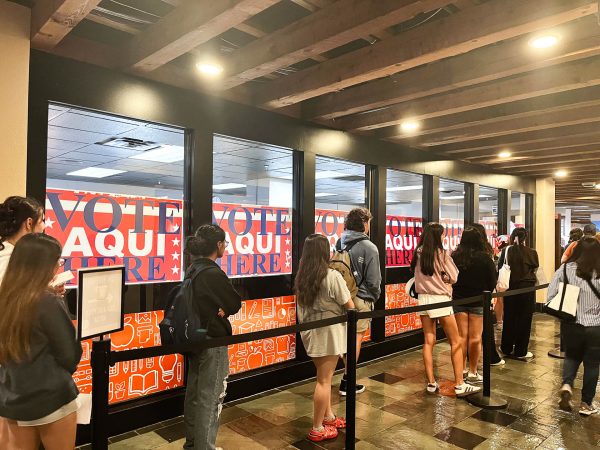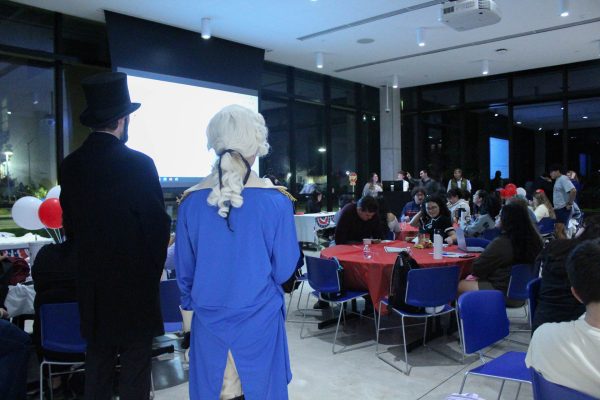As endowment grows, so does tuition
Funding must grow as St. Edward’s University expands, but finding donors to foot the bill is not easy.
Tuition from students covers only 90 percent of the overall cost of running the university; the other 10 percent is where fundraising comes in.
“If we are to continue growing and offering students great opportunities, then fundraising for our future is a real necessity,” says Sara Hoover, the assistant director of Annual and Individual Giving.
The Office of Advancement is where of the fundraising happens and the work of the Research Associate is where some of it begins to take shape.
“My job is to do proactive research for the university; I try to find prospects who will give money to the university,” said Marissa Bates, research associate.
She then takes her findings to one of the Major Gift Officers who will make contact with the potential source; the source may be an alumnus or alumnae, parent, corporation or individual (no direct connection to the university) donor.
It could take up to 10 years to receive a major gift, $20,000 or more, after first contacting a potential source. So, this is only one of many ways that money is solicited for St. Edward’s.
St. Edward’s is a small community, but the size of graduating classes has grown from less than 100 to more than 1,000 in the last 50 years. Because the alumni base has grown so much, the Advancement office believes it is very important to keep alumni updated on what happens around campus. This keeps their interest going and encourages their participation in giving to the university.
All donations go to the university’s endowment. This endowment is the total value of investments and it increases with interest over time. St. Edward’s endowment is slightly below average among similarly sized schools. Because of this, the university is working to add $60 million to accommodate as the school carefully grows the student body each year.
Hoover explained that the Advancement team stresses participation is more important than the amount of money you give. Starting with a Senior Gift Campaign, each new class of alumni becomes engaged as the university teaches them about philanthropy through their gifts.
The Advancement office uses social media, volunteers and grassroots methods to further engage and reach more individuals. The university has many active alumni chapters that serve the St. Edward’s community around the world.
A group of students make up the Phonathon team, which is another aspect of the Annual and Individual Giving team. These students call alumni, parents and friends of the university to keep people engaged in the campus community. They also solicit gifts for the university.
“A large focus since 2012 has been to have quality conversations. Phonathon is often the first time a new donor will hear from us, so that has become the priority over a certain dollar goal,” said Hoover.
Pat and Bill Munday’s giving relationship with the university started with a small amount they gave to a Phonathon caller. This eventually grew to become $20 million in scholarships and $13 million for the new library.
“I love finding similarities in alumni from other generations and getting helpful advice from people who have already finished college and started a career,” said Ysenia Valdez, a Phonathon caller.
After economic turmoil in recent years, things are finally starting to look up for the country and the university.
“Everything is more on the upward trend, it’s always going to be hard to get money from people, but I think we’ve recovered from the bad,” said Bates.
The alumni base is growing steadily enough to provide for the university in the future.
St. Edward’s is also getting more national recognition. This year, the university ranked #15 in the Western region in U.S. News and World Report for “America’s Best Colleges.”
This recognition gives the Advancement office a larger pool of corporations that may have interests in funding university projects.
Rising tuition costs have many students worried, but it is the norm for many colleges across Texas.
“We’ll just keep trying to do the best we can to bring in more scholarship money so that we can level it out,” said Bates.






